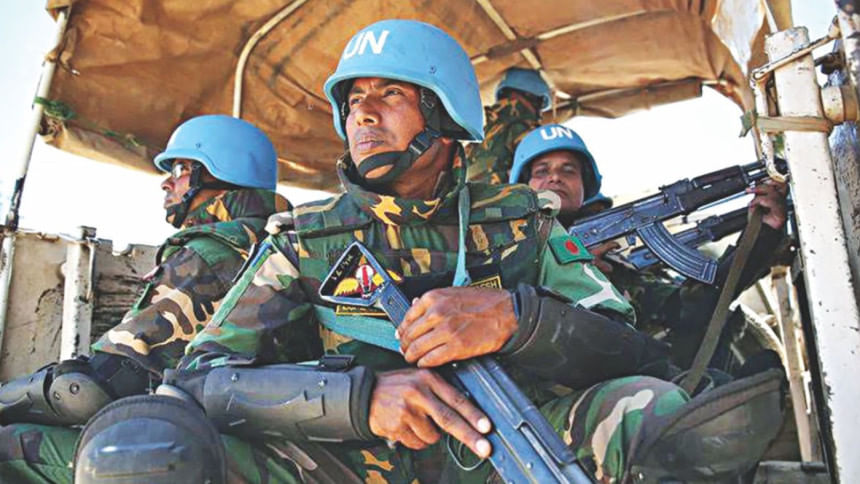UN funding crisis to send 1,400 Bangladeshi peacekeepers home by mid-2026

Around 1,400 Bangladeshi peacekeepers currently deployed in various UN missions will be sent home by the middle of next year as part of a global downsizing caused by severe funding shortfalls, officials have confirmed.The decision was recently communicated to the Bangladesh Permanent Mission to the UN in New York and other troop-contributing countries by the UN Department of Peace Operations.A diplomatic source at the Bangladesh Permanent Mission to the UN told The Daily Star today, "The number...
Around 1,400 Bangladeshi peacekeepers currently deployed in various UN missions will be sent home by the middle of next year as part of a global downsizing caused by severe funding shortfalls, officials have confirmed.
The decision was recently communicated to the Bangladesh Permanent Mission to the UN in New York and other troop-contributing countries by the UN Department of Peace Operations.
A diplomatic source at the Bangladesh Permanent Mission to the UN told The Daily Star today, "The number of Bangladeshi peacekeepers to be affected because of the fund cuts will be close to 1400."
According to the source, Bangladesh will see a 25 percent reduction in its deployed personnel, while Nepal faces a 27 percent cut and Rwanda 31 percent. Bangladesh currently has about 6,000 peacekeepers deployed in 10 countries, making it one of the leading troop-contributing nations.
A foreign ministry official said Bangladesh has requested the UN to ensure balance in troop reductions across nationalities. "We also requested the UN to recruit adequate numbers from Bangladesh when and if the budget is increased," the official added.
Since 1988, Bangladesh has completed 63 peacekeeping missions in around 43 countries, with nearly two lakh personnel from the armed forces participating. In the last three decades until 2022, 165 Bangladeshi peacekeepers lost their lives and 258 were injured in the line of duty.
The cuts follow a directive from UN Secretary-General António Guterres during the September General Assembly, asking missions to reduce expenditures by 15 percent. The UN General Assembly in July approved a $5.38 billion peacekeeping budget for 2025-26, down from $5.6 billion the previous year.
On October 16, UN News reported that the funding shortfall is threatening to cripple peacekeeping operations worldwide. UN peacekeeping chief Jean-Pierre Lacroix described the crisis as "more daunting than ever", warning that reductions will affect patrols, protection duties, logistics, air operations, and civilian support.
Peacekeeping accounts for less than half of one percent of global military spending, estimated at $2.7 trillion in 2024, yet remains one of the UN's most visible tools for maintaining international peace and security.